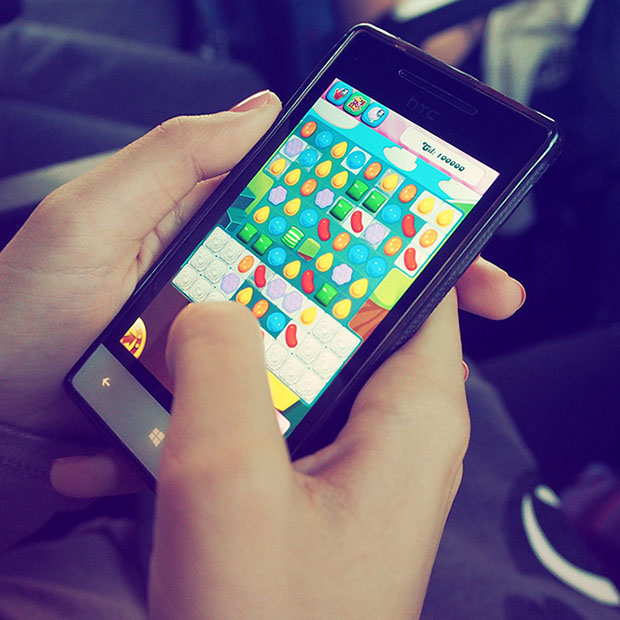
How much of your nightly routine is lit up by a bright screen?
For at least as long as we’ve had handheld devices connecting us to the internet, many of us have been online with our eyes glued to a screen late into the night. This is not an optometrist-approved bedtime ritual. Our screens emit blue light, which can impact our eye health and our internal clocks.
A Brief Lesson on the Physics of Visible Light
The colors we can see are all part of the visible light spectrum, which makes up only a tiny sliver of the electromagnetic spectrum. Red light is the lowest-energy light we can see while violet light is the highest. Infrared is below visible red light and ultraviolet radiation is above visible violet light. (Incidentally, the reason the ocean and the sky look blue to us is that blue light scatters more easily than other colors.)
Artificial Light Versus Our Sleep Cycles
For all of human history until the last few decades, the sun was Earth’s only source of blue light. Our bodies use blue light as a signal that it’s time to be awake, so we tend to feel more attentive, have faster reactions, remember things more easily, and generally feel better during the day. Once the sun goes down, the lack of blue light signals our bodies that it’s time to sleep. Biologically, we just aren’t used to the concept of artificial blue light — which is where it can become a problem in the modern day.
When we light up our phones or computers before we go to bed, we’re blasting our brains with a subconscious signal that it’s not time for sleep, even if it’s very late. Our brains respond by holding back on releasing melatonin, a crucial neurotransmitter for sleep. As a result, it takes us longer to fall asleep and our overall quality of sleep is worse, leading to more of the negative health effects of sleep deprivation.
One way we can avoid the sleep issues that come with artificial blue light is to put our devices away in the last hour before we go to bed. Night mode can also cut the blue light out so that the screen doesn’t send those subconscious signals.
Eye Health and Blue Light
The proximity of blue light to UV radiation on the electromagnetic spectrum initially had many optometrists concerned that it could harm our eyes in a similar way, such as by increasing the risk of age-related macular degeneration. Fortunately, that seems unlikely because the screens we use emit very little blue light compared to the sun (and no UV light at all).
The more immediate concern with blue light is digital eye strain. Hours and hours staring at a bright screen can make our eyes ache or struggle to focus, or we could end up with more headaches. Screen filters and computer glasses can help block out the blue light and reduce strain, but an excellent trick is the 20-20-20 rule: take a 20-second break to focus on an object 20 feet away once every 20 minutes.
Bring Us Your Blue Light Questions!
If you’ve noticed that screentime seems to be associated with symptoms of eye strain or if you have questions about the effects of blue light, we’re happy to answer your questions and recommend solutions. We want to make sure all of our patients have the information they need to keep their eyes healthy and feeling great.
Our patients are a sight for sore eyes (and we hope we are too)!
Top image used under CC0 Public Domain license. Image cropped and modified from original.
The content on this blog is not intended to be a substitute for professional medical advice, diagnosis, or treatment. Always seek the advice of qualified health providers with questions you may have regarding medical conditions.










